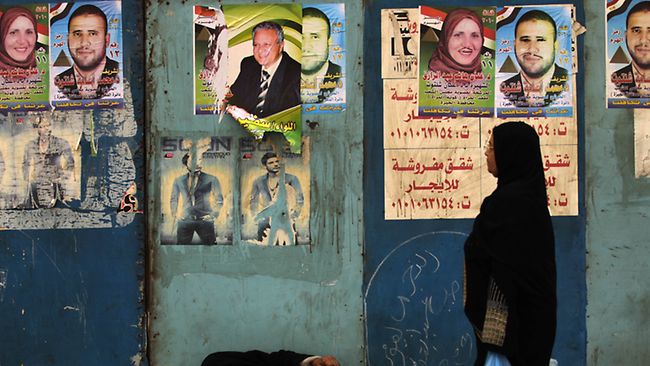
Despite anecdotal reports of massive female turnout in Cairo and other governorates, women may very well be the biggest losers of Egypt’s first free and fair elections. Although 376 female candidates are running for parliament, not a single woman was elected in the first stage of voting on November 28-29. And there is good reason to believe that women will fare just as poorly in subsequent rounds of voting. The second and third stages of elections will include Egypt’s most rural and conservative districts where gender biases are more deeply ingrained than the urban centers – Cairo, Alexandria, and Port Said – that voted this week. Faced with the very real possibility of an exclusively male parliament, many Egyptians are wondering: Were women left behind by the Revolution?
Female candidates already face an uphill battle in overcoming sexist attitudes on the campaign trail, but to make matters worse, structural features of the new electoral system have stacked the odds against women. Amendments to the electoral law introduced in October replaced the 64-seat quota for female parliamentary representatives – enacted by the former regime – with the requirement that each party’s candidate list include at least one woman. At face value, this condition looks like a step toward leveling the playing field. But in reality, forcing parties to nominate women has done no favors for female candidates. Parties have dealt with the gender requirement by relegating women to the least desirable slots at the bottom of their candidate lists. As one female candidate, Suheir al-Matanin described the problem, “Women are just there for decoration.” Under the proportional representation system, seats are allocated to candidates according to their relative position on a party’s list. In most cases, only the first two or three names on a list have a reasonable chance of winning seats, so if every party places its female candidates near the bottom, Egypt’s next parliament is virtually guaranteed to be free of women.
The SCAF could of course remedy the blatant gender imbalance in a backhanded way, by packing the ten seats reserved for government appointees with women and Coptic Christians, a favorite tactic of the former regime to artificially inflate the parliamentary representation of minorities.
In light of the landslide victory by Islamist parties this week, some Egyptians are concerned that a parliament dominated by the Muslim Brotherhood and Salafis could reverse progress on women’s rights. Farkhonda Hassan, secretary-general of the National Council for Women (NCW), warned that the underrepresentation of women in the next parliament could set Egypt “a dozen steps back.” “If Islamists come to power, I expect that they will strip women of the achievements they made throughout the previous years,” Hassan predicted. When Salafi parties were required to include women on their candidate lists, they made sure that the candidates’ faces were replaced with flowers on campaign propaganda, because displaying photos of women in public was deemed inappropriate. If the Salafis are already censoring posters, their parliamentarians aren’t likely to look favorably on the participation of women in public and political life.
Mara Revkin is the assistant director of the Rafik Hariri Center for the Middle East and editor of EgyptSource. She can be reached at mrevkin@acus.org.
Photo Credit: AFP
Image: 441376-egypt-vote.jpg
